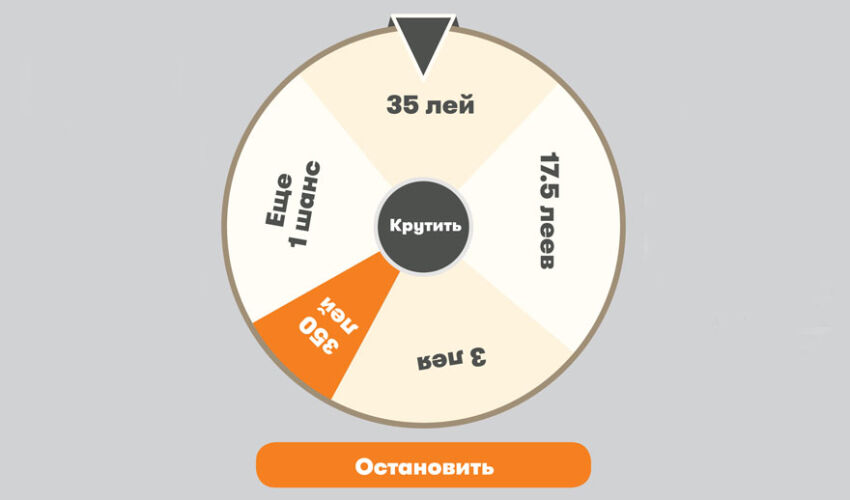
What is Temu and who is behind it?
Temu is a project of the Chinese Pinduoduo Corporation (PDD), founded by a young Chinese businessman Colin Huang. It works along the lines of Amazon and AliExpress, connecting buyers and sellers. The vast majority of them are Chinese manufacturers who, bypassing intermediaries and distributors, deliver goods to customers directly. This not only reduces costs, but also removes legal responsibility for the quality of goods and after-sales service.
Temu’s popularity lies in its low price and free shipping. It is distinguished from its competitors by a number of features: for example, the element of play in the ordering process or the possibility to make collective purchases, which further reduces their cost.
Because of the massive investment in social media advertising, Temu has quickly gained momentum. The company was founded in 2022, but early last year it had already launched in the US, and a little later in Australia, New Zealand and Western Europe. Since last year, the company has been active in Moldova. In total, it is represented in 50 markets worldwide.
Are there really dangerous goods onTemu?
Temu is constantly criticized for selling low-quality goods and a high risk of counterfeiting. Investigations by journalists have shown that many products contain dangerous levels of harmful substances (lead, antimony, cadmium).
Such situations are not only contrary to regulations, but also pose a threat to health, especially for children, who are the most vulnerable to exposure to toxic materials. In addition, fake certificates have been found for a number of products. Marketplace becomes a frequent target of lawsuits due to infringement of intellectual property rights and unfair competition.
A spy in your pocket
Along with aggressive distribution, concerns about Temu’s privacy protections began to grow.
Portal Lupa cites an analysis by Grizzly Research, which identified Temu as a cleverly hidden spyware that poses a security threat, saying it is the most dangerous malware out there. The app’s hidden features allow it to collect information on users who are unaware of it, gaining potential full access to all data on customers’ cell phones.
Temu and Moldovan e-commerce
Temu did not invest much in PR and entered the Moldovan market thanks to large investments in social media and search advertising.
How big? Basically, it’s buying up the whole space. Temu’s spending has increased the price of advertising on Google (it works on the principle of an auction: the bid of the company that paid the most is displayed) by tens of percent compared to the previous year. Smaller Internet players can’t keep up and are losing customers.
And in the online trading business, this is the main component in terms of costs and the development of the Internet channel.
If Temu succeeds, thanks to direct access to the app, the site will have much lower marketing costs and its business model will be more sustainable, unlike Moldovan online stores.
This is a big threat to local players. All Moldovan importers pay taxes and duties when importing, unlike marketplaces (both American and Chinese). Disloyal competition arises: the tax burden makes prices for the same product 30-35% higher.
One should also take into account the fact that the Chinese government subsidizes air delivery of Temu goods to Moldova. This also affects the price gap.
Europe’s reaction to Chinese players
As the number of users grows, the marketplace is facing regulatory complaints. In recent months, more and more countries have warned that they will ban or sanction the online retailer in an attempt to protect their own small and medium-sized businesses from unfair competition with the Chinese giant.
As The Guardian notes, EU countries launched formal proceedings against Temu in the fall of 2024 amid concerns that the store was failing to combat the sale of illegal goods. The EU is also concerned about aggressive sales tactics on the platform and the frequent use of marketing techniques to deceive consumers.
If these concerns are confirmed, the Chinese company faces heavy fines. EU authorities emphasize that every platform, including Temu, must comply with the Digital Services Act (DSA), which regulates technology companies from Facebook to X and Google.
The investigation against Temu was launched based on a complaint by 17 consumer protection organizations from EU countries, including France, Italy and the Netherlands.
The main claims
The company violates the DSA by failing to provide customers with important information about sellers on its platforms. Consumers allege that Temu has made it difficult to cancel accounts, which is prohibited under European law.
The marketplace uses gaming tools like countdown clocks that indicate that an item is about to sell out. This is supposed to serve as an additional incentive for purchases.
Users have complained that the online store contains misleading statements about the environmental friendliness of the goods it sells.
The first and foremost demand is the abolition of duty-free orders at a threshold below 150 euros from sites such as AliExpress and Temu. In 2023, imports of the described goods into the EU amounted to 2.3 billion euros.
Formally, the new rules will apply to any online stores that send their goods to the EU directly from outside the bloc’s countries.
Another measure of the Europeans is the mandatory registration of large trading platforms to pay VAT on all goods in online mode (at the same time, all parcels sent to the EU countries are already subject to this tax from 2021).
The imposition of such duties on all goods from China’s e-commerce sites confirms the tendency of the EU, step by step, to take restrictive measures against China, aimed at protecting national interests and ensuring economic security.
Temu’sreaction
It should be noted that Temu is willing to consider any policy changes that are in the interest of consumers. This should facilitate cooperation with the Moldovan government.
Today the situation is ambiguous. Thus, according to the rules of Moldovan customs work with parcels from abroad, the following goods can be exempted (“may” – at the discretion of the inspector) from paying duties:
– Non-commercial goods (the shipping documents must clearly indicate “non-commercial invoice”.
– the customs value (equal to the sum of the invoice + shipping costs) of a single batch does not exceed 100 euros;
In case of sending a parcel from a legal entity to a natural person, the benefit is granted to: imports that are not classified as commercial consignments, as well as parcels with a value not exceeding 150 euros.
It is noteworthy that the calculation takes into account “price of goods + cost of local delivery from the store at the point of departure”, while the cost of delivery from the country of departure to the point of parcel delivery in Moldova is not included.
For example, Amazon charges the client $10 (or 9 euros) for the delivery of a gadget priced at $150 (or 136 euros) from its warehouse to the warehouse of the postal service in the USA (DHL, BayShop, TNT), while the price of delivery from the USA to Moldova is 50 euros. Total, the value of the parcel is estimated at 136+9=145 euros, so it is not subject to customs duties.
Although the real math should be different: 135+9+50=194 euros.
This example of considering the “minimum threshold” distinguishes postal parcels to individuals from those to legal entities, not in favor of the latter.
I.e. under the same conditions of the nature of the transaction, the goods of non-commercial purpose are with legal entities:
- The minimum threshold is lower: 100 euros, not 150 euros
- The calculation base of the “minimum threshold” includes the cost of transportation from the country of export to the Republic of Moldova, while for natural persons it does not.
Thus, according to Article 219 of the Customs Code (“Object of exemption”):
- Exempted from customs duty, except for the property provided for in Article 220, are consignments of goods sent directly from a foreign country to a consignee in the Republic of Moldova and containing items whose intrinsic value does not exceed 150 euros per consignment.
- Exempted from import duties, except for the property provided for in Art. 220, are consignments of goods containing things with an internal value not exceeding 150 euros per consignment, sent directly from a foreign country from a legal entity to a natural person who does not carry out entrepreneurial activity in the Republic of Moldova (B2C – business to consumer).
What Moldovan business offers
– Introduce VAT on all goods from third countries (non-EU), regardless of the amount;
– Introduce customs duties on all goods from third countries over 150 euros (at the initial stage, remove the price threshold or unify the norms with the EC);
– Introduce mandatory registration of large trading platforms to pay VAT on all goods online;
– Unify imports of legal entities and individuals;
– Provide translations of instructions into the state language, as Moldovan importers do;
– Equalize import requirements for medicines and dietary supplements;
Today, these measures are extremely important for our market, otherwise Moldovan business, 90% of which belongs to small businesses, may be on the verge of disaster.
Mircea Baciu,
Moldovan entrepreneur

